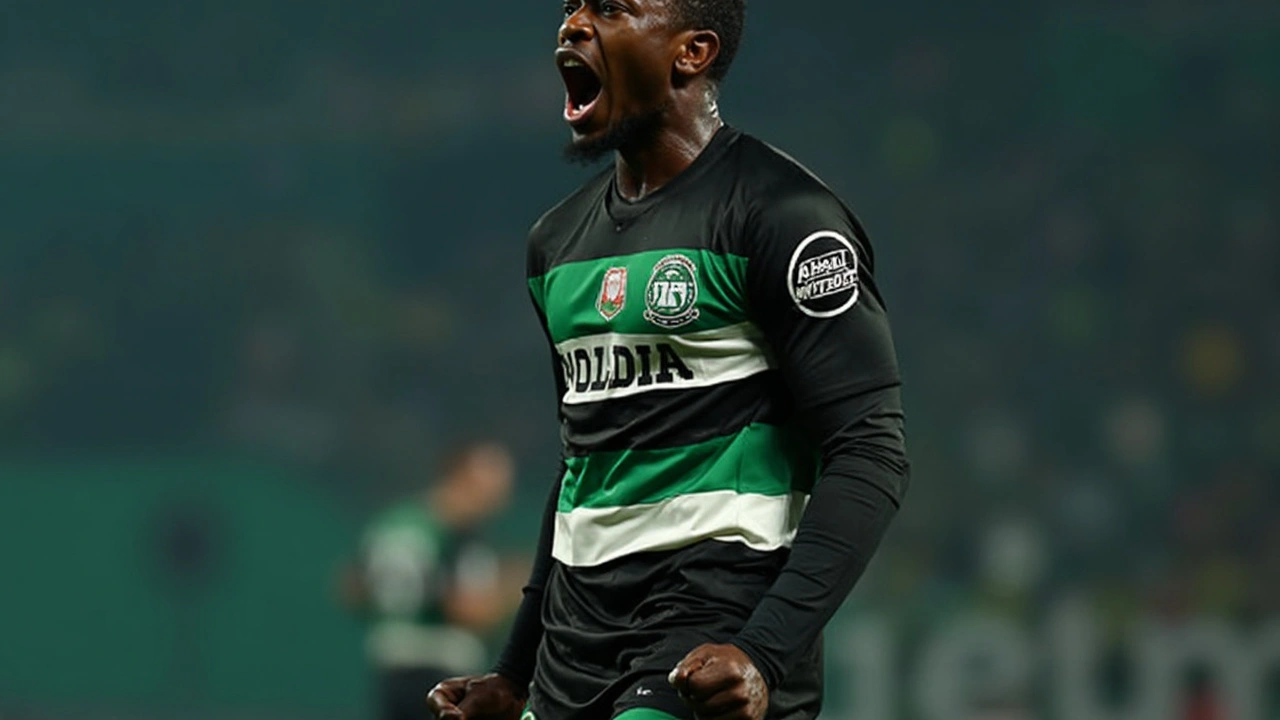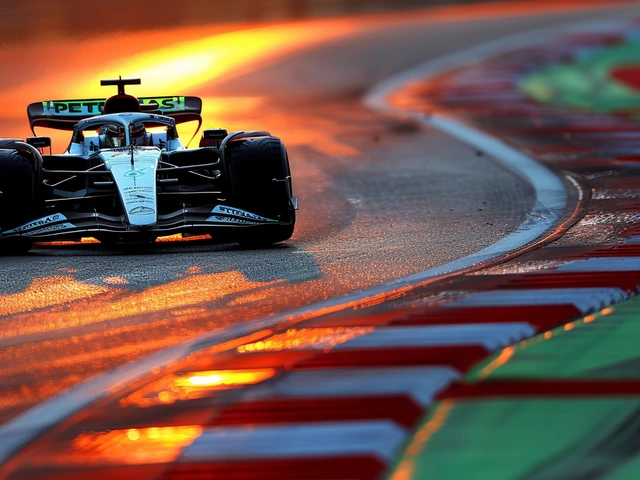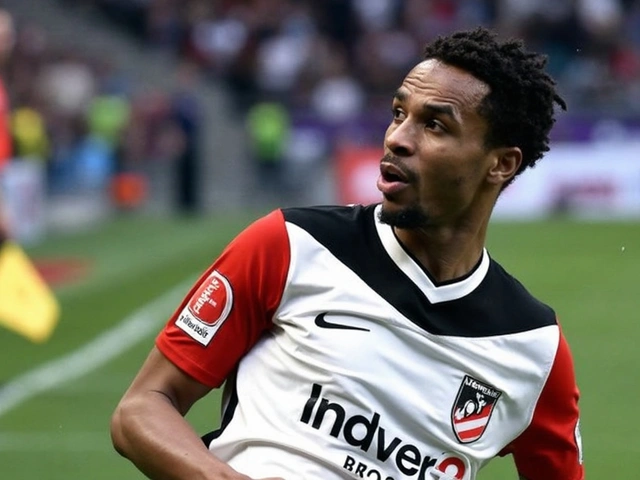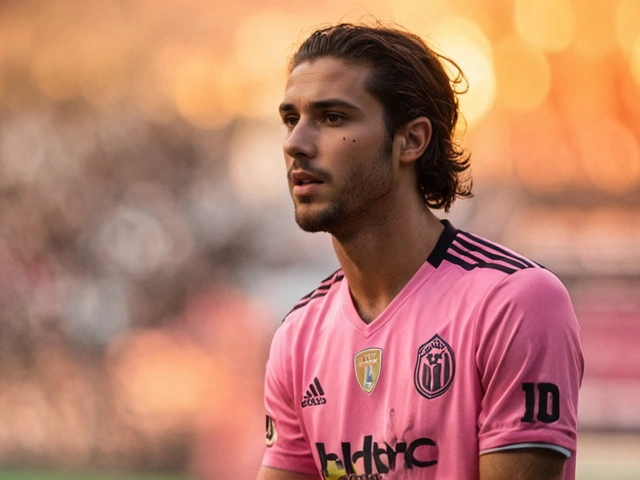
In a stunning twist in the transfer market, Chelsea has successfully reached an agreement to sign the promising young talent Geovany Quenda from Sporting CP. The deal, reportedly worth £40 million, has snatched the 17-year-old winger from under Manchester United's noses. Quenda, who was expected to reunite with his former coach Ruben Amorim at Old Trafford, will now instead look forward to joining Stamford Bridge in 2026.
Manchester United's interest in Quenda was rooted in his remarkable performance at Sporting CP, where he had started standing out at an impressively young age. Current United manager Ruben Amorim had played a key role in Quenda's upbringing at Sporting, which initially put United at an advantage in the pursuit. His inclusion in Sporting's first team was seen as a testament to his talent and skill, drawing inevitable comparisons to Arsenal's Bukayo Saka, especially noted for his defensive work ethic and versatility as a right wing-back.
However, Chelsea's silent yet effective negotiations turned the tables. Transfer guru Fabrizio Romano referred to the move as a 'big shock,' leaving Manchester United eagerly exploring their next plan of action. Originally, United considered the teenager's staggering €100 million release clause a hurdle, though Sporting seemed open to negotiations around the £50 million mark. But what turned United's dream into just that—a dream—was Chelsea's swift intervention and ability to clinch the deal.
Now, Manchester United find themselves reassessing their transfer strategies, amidst the necessity to raise funds for future signings during the summer. With the possibility of offloading some talents to balance the books, the club is looking at a potential £40 million transfer of Marcus Rashford to Aston Villa. In a bid for feeder money, United might also consider parting ways with homegrown stars like Alejandro Garnacho or Kobbie Mainoo.
With Quenda off their radar, United is eyeing other young prospects to fill the void. Tyler Dibling from Southampton has emerged as a standout alternative. The 18-year-old attend is gathering interest from a plethora of clubs across Europe, heralding a competitive bid to secure his services.
This cat-and-mouse game for talents like Quenda illustrates the continued rivalry among Premier League clubs, all vying to rope in Europe's emerging football stars. With Chelsea now owning a long-term stake in Quenda's future with a seven-year contract lined up, Manchester United must rethink their approach in this ever-dynamic transfer landscape.
17 Comments
Write a comment
More Articles

Mercedes Shines as Red Bull Strategizes: Insights from Friday Practice at 2024 F1 Spanish GP
Friday's practice at the 2024 Spanish Grand Prix saw Lewis Hamilton and Mercedes leading the charts. Despite early struggles, Red Bull remains confident with upcoming setup changes. Ferrari and McLaren also showed strong potential, suggesting an intense competition ahead. Key incidents included Alonso's red flag and brief gravel excursions for Hamilton and Norris.

Man United Close in on Bryan Mbeumo With Bold £70m+ Transfer as Summer Overhaul Accelerates
Man United have agreed a £70m-plus deal to sign Bryan Mbeumo from Brentford, aiming to boost their attack after a difficult season. Big changes are underway with new signings and several departures, as United look to complete more transfers, especially for a new goalkeeper.

Inter Miami vs. Toronto FC: Prediction, Odds, and Experts' Picks for July 17 MLS Showdown
An in-depth analysis and prediction for the upcoming MLS clash between Inter Miami and Toronto FC on July 17, 2024. With Inter Miami reeling from a heavy defeat and Toronto FC on a high, expert insights and key player performances will define the game. Lionel Messi's absence due to an ankle injury adds an intriguing element to the match.
Disha Haloi
March 14, 2025 AT 19:36Yet another chapter in the saga of football’s modern feudalism – Chelsea swoops in, snatches a prodigy from United’s grasp, and writes a fresh verse of domination. It’s a stark reminder that ambition without a coherent youth policy is like a ship without a compass, drifting into the storm of rival clubs. The English game thrives when talent is nurtured, not merely bought at inflated prices to chase short‑term glory. One could argue that such moves feed the myth of the ‘big‑money rescue’ while the grassroots are left to fend for themselves. In every transaction lies a silent accusation: did United truly value its own future, or was it merely chasing a headline? This decision will ripple through the academy corridors, inspiring youngsters to aim higher, yet also warning them of the merciless market that treats them as commodities. The philosophical undertone here is clear – power consolidates in those who act decisively, and hesitation is punished in the relentless pursuit of glory.